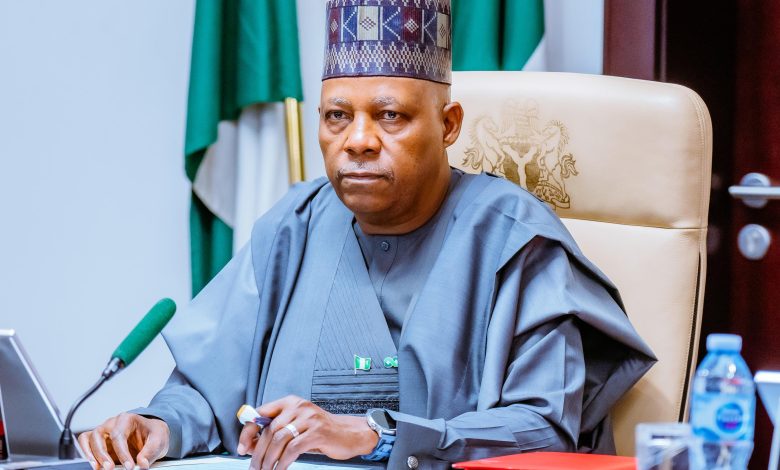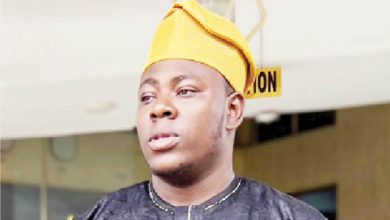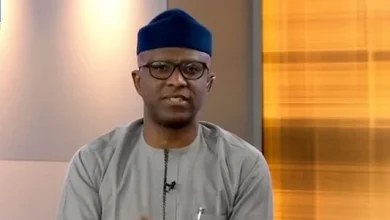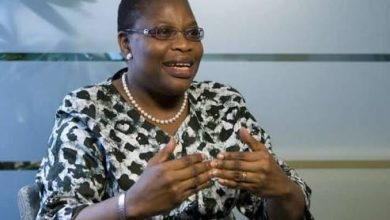Shettima Advocates Capital Market as Tool to Curb Over-Reliance on Oil

In order to promote local industrialization and draw in both foreign direct investments and domestic capital, Vice President Senator Kashim Shettima has recognized the capital market as a vital instrument for diversifying the country’s economy away from an excessive dependence on a single product.
He maintained that a healthy capital market may release latent wealth, increase financial inclusion, and eventually raise residents’ quality of living.
The Vice President gave a speech in Abuja on Monday to kick off a two-day interactive workshop on capital market law, ethics, and judicial interpretations for superior court judges. The workshop was organized by the National Judicial Institute (NJI) and the Securities and Exchange Commission (SEC).
In order to modernize dispute resolution in Nigeria’s capital market and make sure the system keeps up with the rapidly changing financial practices throughout the world, judges, lawmakers, regulators, and legal and capital market specialists are participating in the workshop.
The vice president, speaking on behalf of the president’s special adviser on economic matters, Tope Fasua, defined the capital market as the means by which the nation’s savings are directed toward profitable endeavors, propelling the wheels of development and wealth.
Repositioning the Nigerian Capital Market for National Economic Transformation through Effective Dispute Resolution was the workshop’s theme, and he said it was more than just a discussion point; it was “a clarion call, a strategic imperative that resonates deeply with the economic agenda of this administration.”
Shettima emphasized that this demonstrated the indisputable fact that lasting national economic reform can only be based on a strong, effective, and reliable capital market.
In addition to being a venue for the purchase and sale of securities, the vice president noted that the capital market is the lifeblood of contemporary economies, a complex ecosystem that mobilizes long-term resources for profitable ventures.
By bringing savers and investors together, it gives companies the liquidity they need to grow, innovate, and add jobs. It provides funds for infrastructure projects, allows small and medium-sized businesses (SMEs) to grow, and allows entrepreneurs’ aspirations to come true. In Nigeria, a country full of promise and with a young, vibrant populace, the capital market is even more important. It is an essential instrument for drawing in both foreign direct investment and domestic capital, encouraging domestic industrialization, and diversifying our economy away from an excessive dependence on a single product.
A healthy capital market has the power to increase financial inclusion, release latent wealth, and raise residents’ standards of living. It is the means by which national savings are directed into profitable endeavors, propelling the wheels of development and prosperity,” he said.
A thriving digital economy, a revitalized agricultural sector, a diversified industrial base, and massive infrastructure development are just a few of the nation’s ambitious goals. He argued that none of these can be realized without significant, long-term capital, which can only be found in the capital market.
He said that although the banking industry is important and mostly supplies short-term financing, the capital market, with its ability to supply stock and long-term debt instruments, is what provides the patient capital needed for the transformative undertakings.
He emphasized that it serves as a platform for public-private partnerships, future income securitization, and enabling regular Nigerians to participate in the country’s growth narrative.
But the success of any capital market depends on one essential and non-negotiable component, he said: trust. He added that investors, whether domestic or foreign, institutional or retail, will only part with their hard-earned money if they are certain that their investments are safe, that transactions are open, and that their rights are upheld.
He emphasized that solid regulatory frameworks, competent market operations, and—above all—an efficient and unbiased dispute resolution process are the cornerstones of this confidence.
“We accept that the full potential of our capital market has occasionally been impeded by certain obstacles. Market liquidity, investor education, and the perceived effectiveness and equity of our dispute resolution procedures are a few of these concerns.
In today’s globalized financial market, capital is extremely mobile and looks for settings that provide not just profits but also legal predictability and assurance. Any perceived flaw in our dispute resolution process could turn off possible investors and cause money to move to more alluring countries, he stated.
In her keynote speech, Justice Kudirat Kekere-Ekun, the Chief Justice of Nigeria (CJN), who was represented by Justice Stephen Jonah Adah of the Supreme Court, also mentioned that the capital market is now a vital tool for economic empowerment and participation rather than a remote concept reserved for institutional or high banking investors.
From small-scale investors and diaspora bond subscribers to pension contributors and fintech entrepreneurs, the CJN noted that the capital market impacts opportunities, livelihoods, and national competitiveness.
Consequently, she argued that it was a democratic instrument for wealth creation and national stability rather than just an economic one.
It is susceptible, nonetheless, just like any other critical system. The capital market can be a source of distortion, but it is also a storehouse of trust. Though vulnerable to fraud and regulatory arbitrage, it serves as a platform for innovation. There is a significant role for the judiciary in this regard. Not as passive arbiters, but as proactive stewards of business fairness and economic integrity.
“We need to recognize the rise of new financial frontiers, including transnational securities, digital assets, cryptocurrency transactions, and green financing tools.” Frequently, these advancements surpass the instruments of conventional judging. We must resist the temptation to believe that originality contradicts precedent, nor is it enough to simply apply established ideas without modification. Our approach to these matters should instead be one that maintains legal coherence while being adaptable to changing business circumstances. The Investments and Securities Act, 2025, which was recently passed, is a positive step. Its measures provide improved investor protection mechanisms and regulatory clarity. However, unless they are interpreted with knowledge and purpose, even the most advanced rules are useless. Thus, it is our responsibility to provide these statutory instruments vitality and significance that is consistent with the goals of the legislature, business reasoning, and ethical considerations.
This workshop is more than just a workout. It is a forum for introspection and rejuvenation; it is a furnace for expanding our comprehension of the demands that contemporary financial adjudication places on the Bench. Beyond the courtroom, the decisions we make in capital market conflicts affect investor behavior, public confidence, and the stability of financial institutions, according to Kekere-Ekun.
“When justice is swift, sound, and credible, capital is attracted, innovation flourishes, and prosperity becomes inclusive,” he said, reminding the judges of the important signals their verdicts send.
“When judgments are delayed, unclear, or uninformed, economic activity is stifled and confidence is eroded,” she said in contrast.
Read Also: Atiku to Wike: God Is Not Mocked, Judgment Day Is Near
As a result, she emphasized, the court must regard itself as a co-architect of the national economic system in addition to being a lawbreaker. She said that the workshop was held during a period of significant national importance, one that was marked by economic complexity and rapid changes in the regulatory framework.
She said that the judiciary cannot stand by in such a situation, adding that “our jurisprudence must respond with both integrity and intelligence.”
“This forum is essential, not simply timely. In the constantly growing field of capital markets and economic justice, it is a reaffirmation of our shared determination to improve judicial competence and hone our interpretive skills,” she said.
President Bola Tinubu and the National Assembly were commended by SEC Director General Dr. Emomotimi Agama in his opening remarks for the Investments and Securities Act (ISA), 2025’s successful passage and enactment. He added that the historic law represented a major turning point in Nigeria’s financial and economic sector, bolstering investor confidence, fortifying regulatory frameworks, and improving the country’s standing in international markets.
According to Agama, the workshop was a part of the SEC’s steadfast commitment to a deeper engagement with all stakeholders, making sure that the provisions of the ISA 2025 are widely discussed, understood, and disseminated in order to achieve the goals of restoring investor confidence, providing prompt assistance to resentful investors, and fostering widespread Nigerian participation in wealth creation.
Mr. Ola Olukoyede, the chairman of the Economic and Financial Crimes Commission (EFCC), mentioned in his speech the current investment and commercial crime cases that the anti-graft agency is working on involving Binance and CBEX, among other companies.
It has become imperative that we comprehend the complexities of some of these new issues pertaining to virtual assets. Two months ago, an international development agency that was hired by the World Trade Organization (WTO) to conduct a survey on virtual assets and investment released a report estimating that, in 2023 alone, virtual assets and investment funds accounted for approximately 9.8% of global GDP.
They still haven’t produced the 2024 report. By the years 2025 and 2026, it is predicted to increase to 14.5%,” he stated.
“It’s important to understand that by the time some of these emerging issues start coming before you (of course our filing processes have begun), you will start hearing some funny terminologies your Lordships have not heard before,” he reminded the justices.
Among the terms he mentioned were Bitcoin, Blockchain, Bitcoin, Decentralized Finance (DeFi), Digital Wallet, Stable Coin, Distributed Ledger, and Mining.
He informed the judges that when they hear the word mining, they don’t think of gold or uranium, but rather money service.
He pointed out that similar problems would arise when cryptocurrencies or virtual assets become more widely accepted after ISA 2025 was passed.
Nigeria needed to rise to the occasion, he said, adding that the EFCC had reason to publish the identities of roughly 58 illegal companies operating pyramid schemes in Nigeria a few months prior.
The Central Bank of Nigeria (CBN) rejected their legal existence, he said, and the SEC verified that they lacked a license.
The EFCC has already brought charges against the 58 of them, Olukoyede added, emphasizing that 12 of them have already been found guilty while the remaining cases are still pending.
We face a significant difficulty as a result. In order to make sure that this threat is eliminated, we would want to ask the judiciary for assistance,” he said.
A bill to convert the Investments and Securities Tribunal (IST) from a tribunal to a regular court is already being supported by Osita Izunaso, the chairman of the Senate Committee on Capital Markets, according to his earlier remarks.
When the statute is enacted, the IST will no longer operate as a tribunal and will instead take on the customs of ordinary courts, including the appointment of judges and holding of sessions.
He called on the SEC to launch an aggressive nationwide awareness campaign about the IST Act 2025.





